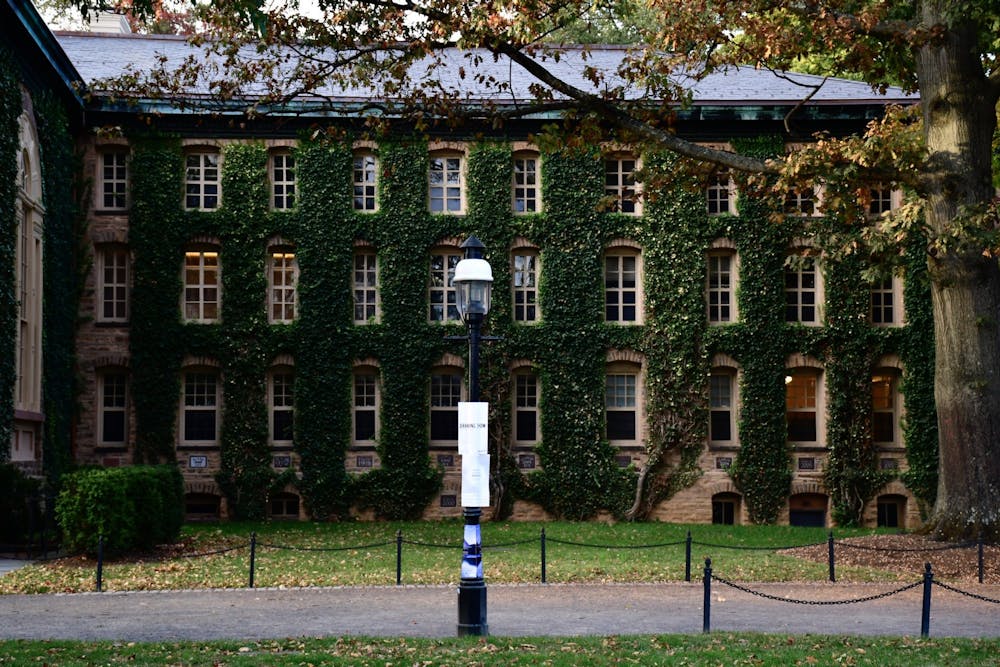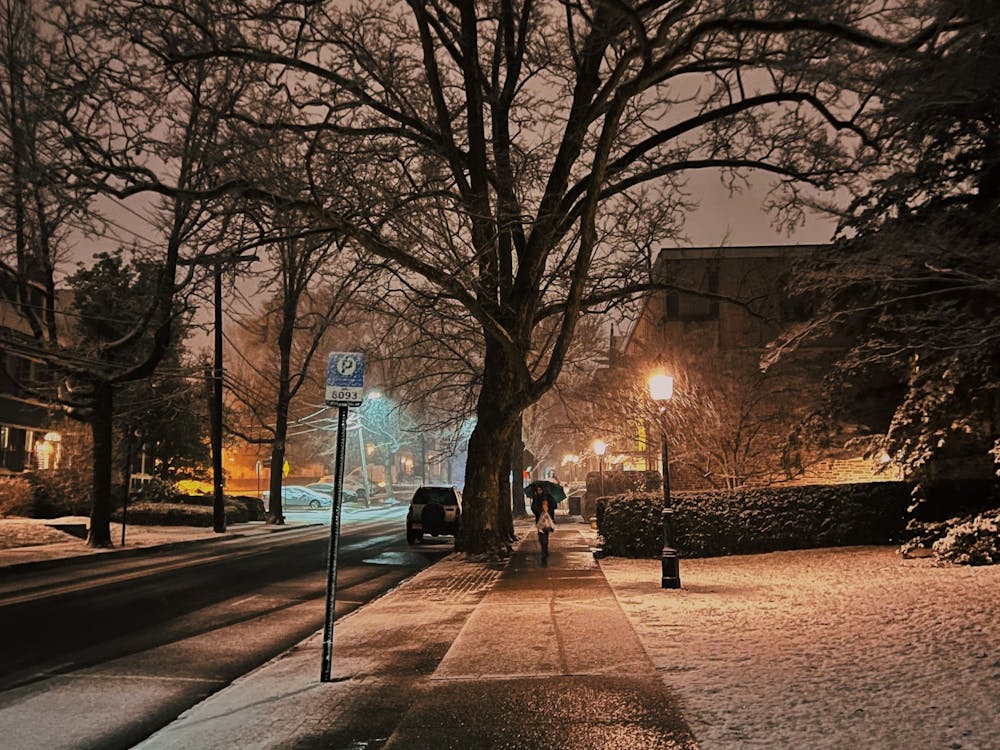Due to housing and enrollment constraints, students who take gap years this fall may not be guaranteed immediate return to the University, according to a response from Dean of the College Jill Dolan at the Council of the Princeton University Community (CPUC) meeting on Monday, May 4.
“We are not changing the policy for returning students or for newly admitted students,” Dolan said during the Q&A portion of the meeting. “If students do take a leave [of absence] or defer, we cannot guarantee that they’ll all be able to return in one year.”
Her response comes after some students, both at Princeton and across the nation, have expressed that they would prefer to take a gap year over participating in an online fall semester. If too many students choose to take leaves of absence for the 2020–21 school year, over-enrollment could occur the following year, putting a strain on housing and dining services.
Dolan went on to explain that returning students must contact their residential college deans about potential gap years, and newly admitted students must contact the admission office.
Other topics addressed in the CPUC meeting were plans for the fall semester, University finances, and fossil-fuel divestment. The meeting began with a presentation by President Christopher L. Eisgruber ’83, who discussed the fall semester update letter sent to the University community earlier that day.
Eisgruber stated that plans to reopen the campus in the fall follow three principles: fidelity to the University’s teaching and research missions and to making education accessible and affordable, protecting the health and safety of the University community, and looking for simple solutions “given the tremendous uncertainty that we confront.”
He expressed confidence that the University can resume laboratory research and graduate student advising on campus starting in the summer, while acknowledging that undergraduate life will prove more challenging to resume. “Undergraduate education,” Eisgruber said, “presupposes social engagement across the entire University.”
Eisgruber implored faculty to “plan on the assumption that their fall courses will be online,” given that a “pivot” back to residential life would be a relatively easy adjustment.

Eisgruber also indicated that the University is facing a period of financial stress.
“All revenue streams are negatively impacted by the circumstances we’re experiencing now,” he said, though he admitted that the University is “in a better position than most colleges and universities” due to its lower-than-average reliance on tuition and student fees.
At $26.1 billion, the University touts the largest per-student and fourth-largest absolute endowment in the United States.
The University spends approximately $1.3 billion annually, but under the current circumstances, is projected to spend nearly $1.6 billion. According to administrators, such an expenditure would likely prove unsustainable over time. Eisgruber called for an increase in financial discipline, stating that the given rate of spending in the long term would come with trade-offs, such as staff layoffs.

“Both the provost and I remain optimistic,” Eisgruber said.
In an April 8 email to University faculty and staff, Provost Debbie Prentice announced that the University would suspend faculty and staff salary increases and place a near-total freeze on hiring.
A Q&A segment followed. According to current CPUC policy, questions were submitted three days prior to Associate Secretary Christine Gage.
One student inquired about potential reductions to the $3,500 student contribution currently included in many students’ financial aid packages. Eisgruber was unable to respond in detail but stated that work was being done on the issue.
In response to a question on summer housing availability for students currently approved to stay on campus, Eisgruber again emphasize that more time is needed before an answer becomes available. He emphasized that the University’s ability to provide housing depends on student cooperation.
“There are lots of students who have stepped up well, and some who have not,” he said. “We need full cooperation with the public health principles that this University is enforcing and the state is requiring of us.”
Eisgruber was then asked whether tuition adjustments will be made if the fall is online, to which he replied that an answer was not yet available.
The CPUC also heard reports from the ad hoc Committee on Sexual Climate, Culture, and Conduct, the Resources Committee, the Graduate Student Government (GSG), and the Undergraduate Student Government (USG).
A conversation on divestment began through a report given by Professor Blair Schoene, chair of the Resources Committee. The Resources Committee was established in 1970 to “consider questions of general policy concerning the procurement and management of the University’s financial resources.”
The organization maintains the additional responsibility of determining whether the University Board of Trustees should divest funds and dissociate from a particular company whose “actions are in direct and serious contradictions to University values.”
The University has divested only twice in its history — once in response to apartheid in South Africa and the other to genocide in Darfur.
Currently, the committee is investigating a proposal from Divest Princeton, a “coalition of students, faculty, and alumni calling on Princeton University to divest our endowment from fossil fuel companies and reinvest responsibly.”
Schoene said that the committee is trying to understand the “University’s commitment to become carbon neutral by 2046” and how this relates to the proposal put forth by Divest Princeton.
Several students expressed criticism of University policy, with one wondering how the University’s sustainability action plan is compatible with investment in the fossil fuel industry and another asking how divestment from the fossil fuel industry could be “any more political than supporting it.”
Schoene responded that the committee recognizes that divestment could be considered a political statement, which does not reflect the committee’s apolitical nature.
Vice President for Campus Life Rochelle Calhoun also gave an update on the Committee of Sexual Climate, Culture, and Conduct, noting that — though committee membership is still being finalized — she has outlined an agenda for meetings that will take place over the coming weeks. The committee was formally approved at the Dec. 9 CPUC meeting, and replaces the Faculty-Student Committee on Sexual Misconduct.
The first meeting will concern “learning about issues of climate and culture and conduct on this campus,” and the second meeting will be a conversation centered on the book “Sexual Citizens: A Landmark Study of Sex, Power and Assault on Campus,“ authored by two professors at Columbia University.
Afterwards, GSG president Karina Alventosa GS provided an update on the recently launched mental health campaign, which, according to Alventosa, is the first of its kind for the GSG and also one of the first among peer institutions.
“Our health and life officers have been working very hard during this crisis to provide virtual mental health events,” she said.
Alventosa is also exploring ways to help graduate students navigate post-graduation career options amid the pandemic.
“I’m continuously surprised by how many people are continuing to make our lives wonderful, and I want every graduate to know that as well,” Alventosa said. “I’m very proud to be a Princetonian right now.”
USG president Chitra Parikh ‘21 also spoke about USG’s current priorities, noting that USG had four main areas of concentration prior to instruction being moved online: mental health; Title IX reform and sexual misconduct; housing, dining, and transportation sustainability; and increasing accessibility to campus resources.
USG is now investigating how to provide transportation resources to help students seek off-campus mental health resources, given the sale of 20 Nassau Street, a building that housed the offices of many mental health specialists. USG is also looking to create “a survivor-oriented inclusive space on campus,” as well as a “meditation and prayer space.”
Parikh expressed the government’s interest to “expand the opt-in program for reusable utensils,” a program begun by the Office of Sustainability earlier this year.
Parikh also outlined recent projects undertaken by USG, including the Buds at a Distance Program, meant to “facilitate peer connections and introduce students to each other off-campus.”
This was the last CPUC meeting of the 2019–20 academic year.








